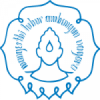Keywords: learning model, Pancasila, higher education institutions.
Triyanto, Kwartarini W. Yuniarti *)
LPPM UNS, Penelitian, DP2M, Hibah Pekerti, 2009
The aims of this research are (1) to describe the lecturers and students’ view on Pancasila (Indonesian philosophy) education at higher education institutions; (2) to describe the learning models applied that have been implemented in Pancasila education at higher education institutions; (3) to identify the problems persisting in the learning of Pancasila education at higher education institutions; and (4) to create a learning model for Pancasila education which can be applied at higher education institutions in order to improve the students’ awareness towards the values of Pancasila. This research is a development one whose objective, in this case, is to develop a learning model for Pancasila education at higher education institutions. The research used an action research method with a participatory approach of the subject of the research. Its data consisted of primary and secondary data. The data ere gathered through interview, observation, library research, and interactional group discussion. The results of the research show that (1) the lecturers and students view that Pancasila education has an important role in upholding the youth generation’s morality; (2) the lecturing method still dominates Pancasila education at higher education institutions: (3) the principal problem encountered in Pancasila education is how to set the values of Pancasila to the students; and (4) based on the former, a learning strategy of Pancasila named “Challenging Models of Learning Pancasila) is formulated. The main characteristic of the learning strategy is that there are debating groups and fact finding. Through this learning strategy, the students can optimize all the learning potentials in terms of cognition, affection, and psycho-motor so that the objectives of the learning are reached.

